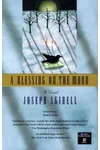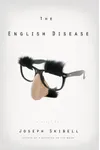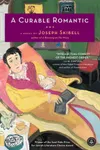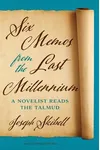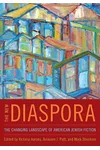Picture a Texan storyteller weaving Jewish folklore with haunting historical truths—meet Joseph Skibell! This American novelist, born in Lubbock, Texas, crafts tales that dance between magical realism and profound human experiences. Known for his debut novel, A Blessing on the Moon, Skibell blends Jewish identity, Holocaust narratives, and whimsical innovation, earning him a cherished spot in contemporary literature.
As a professor at Emory University, Skibell’s work resonates with readers seeking stories that are both deeply personal and universally moving. His ability to transform tragedy into enchanting narratives makes him a unique voice. Ready to explore the world of this award-winning author? Let’s dive in!
The Making of Joseph Skibell
Born on October 18, 1959, in Lubbock, Texas, Joseph Skibell grew up in a close-knit Jewish family, surrounded by the rhythms of pop music and the legacy of his family’s clothing business. Inspired by poetic songwriters like Bob Dylan and literary giants like Shakespeare, Skibell found his calling in storytelling. He earned a Bachelor’s degree from the University of Texas at Austin in 1981 and later a Master of Fine Arts from the Michener Center for Writers in 1996. His early years, steeped in Jewish tradition and Texan culture, shaped his distinctive narrative voice.
Skibell’s career took off after he honed his craft at prestigious institutions like Yale and the University of Chicago. His time as a fellow at the Wisconsin Institute for Creative Writing in 1996–97 marked the beginning of his rise, setting the stage for his critically acclaimed novels and essays.
Joseph Skibell’s Unforgettable Stories
Skibell’s debut, A Blessing on the Moon (1997), is a magical realist masterpiece inspired by the Holocaust and his great-grandfather, Chaim Skibelski. The novel follows Chaim, a Polish Jew, who, after being killed, wanders the earth with a talking crow rabbi. Critics praised its daring humor and emotional depth, calling it “wholly original” and a bold evocation of a dark era. It won the Turner Prize for First Fiction and was adapted into an opera.
His second novel, The English Disease (2003), explores Jewish identity through Charles Belski, a man grappling with guilt after marrying a gentile. A Curable Romantic (2010), Skibell’s longest work, is an intellectual comedy spanning Esperanto and Jewish mysticism, showcasing his knack for weaving eclectic themes. His nonfiction collection, My Father’s Guitar and Other Imaginary Things (2015), offers tender, humorous essays about family and memory, while Six Memos from the Last Millennium (2016) reinterprets Talmudic tales with a novelist’s lens.
Skibell’s style is a vibrant mix of wit, folklore, and philosophical inquiry. His works, translated into languages like Chinese and Ido, tackle heavy themes with a light touch, earning accolades for their “daring honesty” (New York Times) and “high-energy, wild” creativity (New Republic).
Why Joseph Skibell Matters
Joseph Skibell’s impact lies in his ability to bridge Jewish heritage with universal human struggles. His novels offer a fresh lens on the Holocaust, using magical realism to make the incomprehensible accessible. As a professor and director of the Richard Ellmann Lectures (2008–2015), he has shaped aspiring writers and brought literary giants like Margaret Atwood to Emory’s stage. Awards like the Sami Rohr Award and a National Endowment for the Arts Fellowship highlight his influence in Jewish literature.
Skibell’s work invites readers to confront history with empathy and imagination, ensuring his stories endure. His play, Wooden Nickels (2020), and upcoming novel, Dr. Bopstein and the U.S. Dept. of Dreaming, promise to further his legacy as a literary innovator.
- Born: October 18, 1959, Lubbock, Texas
- Key Works: A Blessing on the Moon, A Curable Romantic, My Father’s Guitar
- Awards: Sami Rohr Award, National Endowment for the Arts Fellowship, Turner Prize
- Fun Fact: He played guitar onstage with Paul Simon and Margaret Atwood!
Snag A Blessing on the Moon and dive into Joseph Skibell’s magical, thought-provoking world today!
